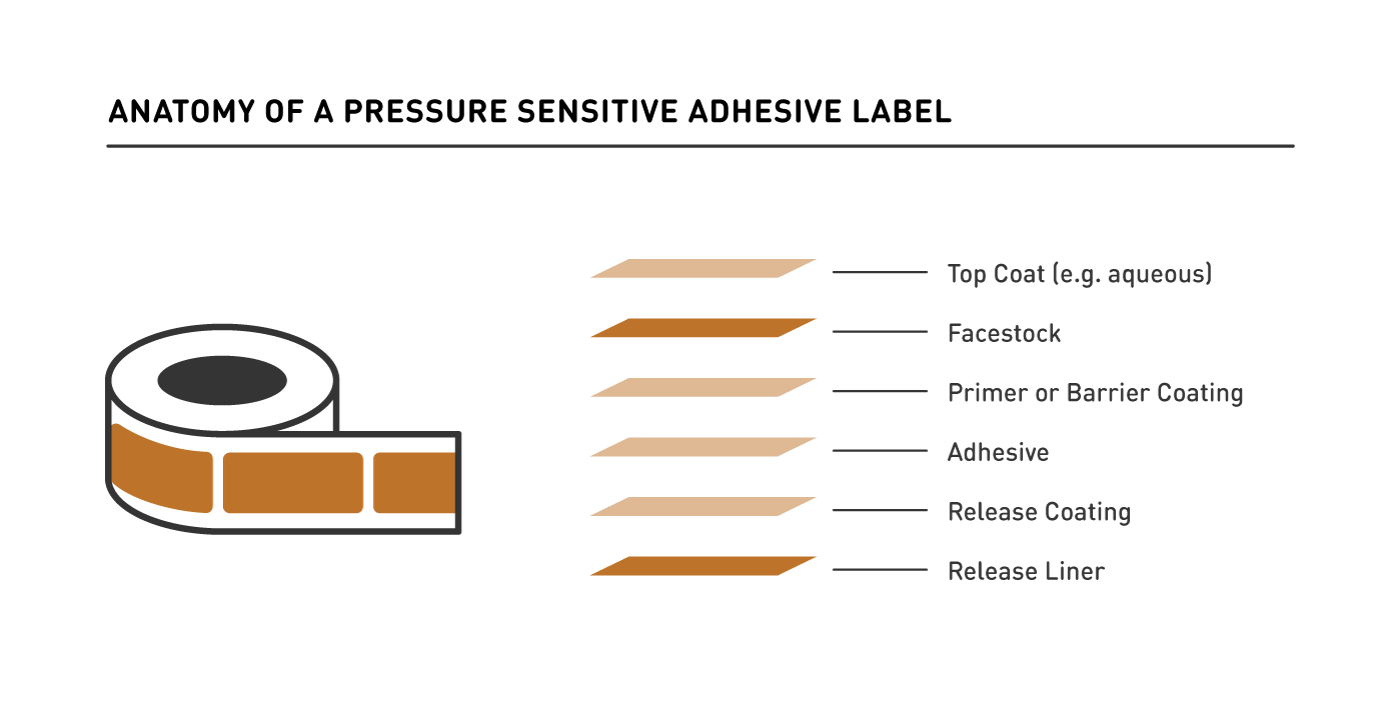Article Summary
There are a number of 100% PCW pressure-sensitive adhesive labels on the market, but most come with unrecyclable, silicone coated release liners. We discovered Green Bay Packaging makes labels with release liners that can be recycled with corrugated cardboard.
Disclaimer: this post is over a year old and may be outdated. If you find any broken links or outdated information, please leave a comment on the post.
Practicing and promoting sustainability is a top priority for us at Cast Iron Design and we’re always thrilled to work with like-minded clients. The Flower Collective, based in Nederland, Colorado, is a great example of a company trying to push their industry in a sustainable direction. They’re an organic cannabis grower and distributor that focuses on producing high quality cannabis using cutting-edge sustainable production methods. They wanted their packaging to reflect the company’s commitment to environmental responsibility which gave us to opportunity to utilize some really cool sustainable packaging solutions. Sourcing the 100% recycled, locally-manufactured paperboard and plastic tubes was relatively easy, but we did a little extra digging when it came to the adhesive labels—an area that is often overlooked when it comes to sustainability.
Most conventional pressure-sensitive adhesive labels have two basic parts, a facestock and a release liner. The facestock is the sticker itself (the part with adhesive). The liner’s job is simply to protect the facestock until it is ready to be applied. There are numerous pressure-sensitive adhesive labels on the market that claim to have green credentials, but all of them have a significant shortcoming—half of the product is inherently destined for the landfill. Typically release liners are made of paper that has been bleached (to whiten the paper—for purely aesthetic purposes) then coated with layer of silicone so that the adhesive labels don’t adhere to the liner. This silicone coating, however, renders the release liners non-recyclable.

For The Flower Collective adhesive label, we specified a label with a facestock comprised of 100% postconsumer waste (PCW) recycled fibers, the greenest option when it comes to paper fibers (although this is oversimplifying things a bit). There are a number of 100% PCW pressure-sensitive adhesive labels on the market, but most all have the same glaring problem—the release liner. The labels we specified for the project are made by Green Bay Packaging, a company that has developed a release liner that can be recycled with corrugated cardboard, saving unending amounts of viable paper fiber from entering the landfill. The labels are also made with a kraft release liner, saving gallons of unnecessary whitening chemicals.
In addition to choosing the material we oversaw the production of the labels. We specified water-based inks and a water-based top coating with a matte finish to protect them from dirt which was critical to the function/use of the labels. Last, we specified a butt-cut—instead of the more common diecut—in order to minimize trim waste, fit more labels per roll, and as a result, use less paper. The rest of the packaging is still in production and we plan to post the finished project to our portfolio in the months ahead.